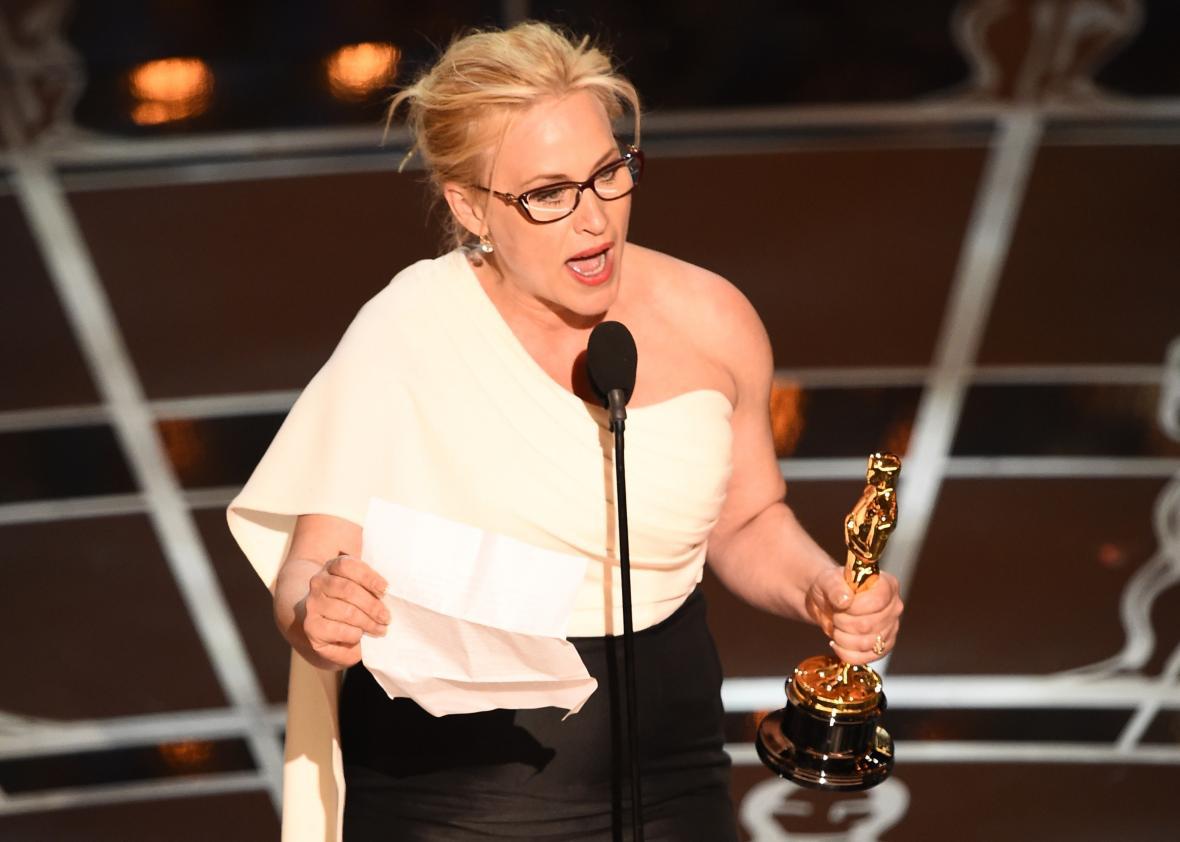One of the pioneers of intersectional feminism says she sees real, “awesome” change in the way the movement has redefined itself to include the experiences of women of color. In an interview published in the New York Times on Thursday, the scholar Bell Hooks, who stylizes her name as bell hooks, says, “My militant commitment to feminism remains strong, and the main reason is that feminism has been the contemporary social movement that has most embraced self-interrogation”:
When we, women of color, began to tell white women that females were not a homogenous group, that we had to face the reality of racial difference, many white women stepped up to the plate. I’m a feminist in solidarity with white women today for that reason, because I saw these women grow in their willingness to open their minds and change the whole direction of feminist thought, writing and action. This continues to be one of the most remarkable, awesome aspects of the contemporary feminist movement. The left has not done this, radical black men have not done this, where someone comes in and says, “Look, what you’re pushing, the ideology, is all messed up. You’ve got to shift your perspective.” Feminism made that paradigm shift, though not without hostility, not without some women feeling we were forcing race on them. This change still amazes me.
This hopeful vision means a lot coming from Hooks, who has long been one of the most trenchant critics of the whiteness of the women’s movement—starting with her 1981 book Ain’t I a Woman. She has also been one the most consistent voices insisting that feminism was capable of the “paradigm shift” she describes. In her 2000 book Feminism Is for Everybody, Hooks rejected the “notion that there could be as many versions of feminism as there were women,” and instead supplied a definition designed to be relevant across class and racial lines: “Feminism is a movement to end sexism, sexist exploitation, and oppression.”
Of course, no matter how much self-interrogation feminism has accomplished as a movement, there’s still a lot of work to be done. Last winter, the actress Patricia Arquette’s attempt to turn her Oscar acceptance speech into a call for wage equality became a prime example of white feminist ignorance when she said: “[I]t’s time for all the women in America and all the men that love women and all the gay people and all the people of color that we all fought for to fight for us now.” But it supports Hooks’ point that Arquette published an essay on Wednesday apologizing for her blindered view of feminism. “Since the speech, I have learned a lot more about the feminist movement and how women of color have been left out of the process,” she wrote in Vanity Fair. “I understand that more now. I am really sad that I may have added to their feeling of being excluded.” Baby steps.
The whole interview with Hooks, in which she sat down with Emory philosophy professor George Yancy, is well worth a read. Hooks talks about “the crisis of racial hatred” (“I used to talk about patriarchy as a mental illness of disordered desire, but white supremacy is equally a serious and profound mental illness, and it leads people to do completely and utterly insane things.”). She comments on the silliness of the term public intellectual (“There is nothing public about the energy, the discipline and solitude it takes to produce so much writing.”). She discusses the intersection of race and poverty (“poverty has become infinitely more violent than it ever was when I was a girl”). Finally, Hooks closes out the interview by talking about the relationship between her Buddhist Christian spirituality and her feminism: “Feminism does not ground me,” she says. “It is the discipline that comes from spiritual practice that is the foundation of my life.” She talks about Buddhism’s emphasis on daily practice: “What are you doing? Right livelihood, right action. We are back to that self-interrogation that is so crucial.”
